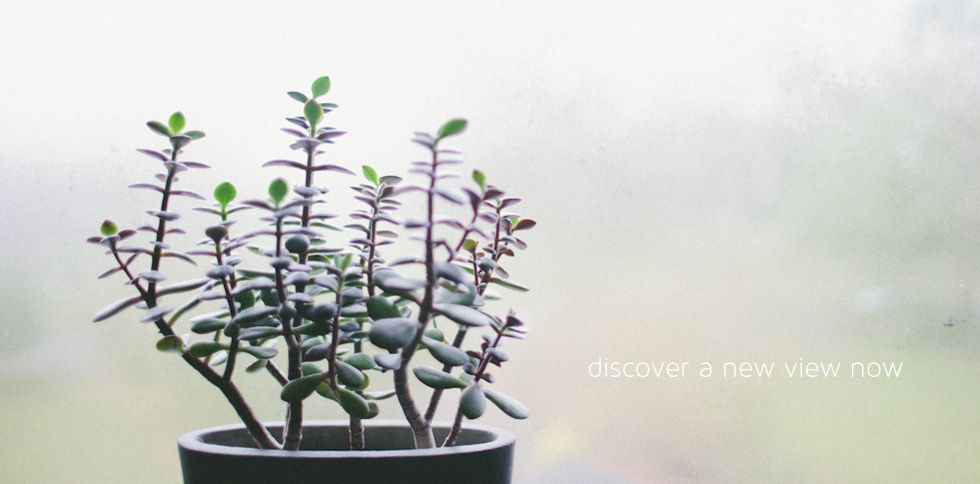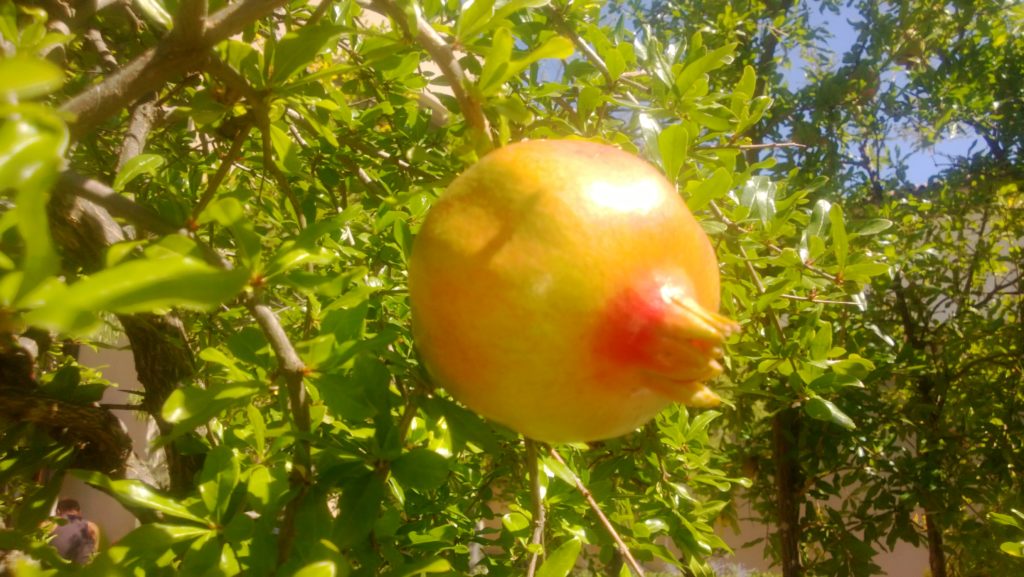
The pomegranate tree our daughter and I ate lunch beneath on a journey celebrating completion of her Ph.D.
Mary Beard’s book Women & Power: A Manifesto skillfully traces women’s lack of voice and power in society from ancient Greece to today. She makes the case powerfully enough that her unsettling questions began rattling around in my sleep — stoking my deep longing to live in a verdant, nurturing world that honors and affirms women, the earth, and dare I say it? Peace.
So, I shouldn’t have been surprised a few days later when my hair was metaphorically “set on fire” by an innocent-enough looking plaque at the Chicago Botanic Garden Orchid Show. The culprit. None other than the ancient Chinese philosopher Confucius. The offense. Comparing “Ian, the Chinese word for orchid to the ideal man, ‘chun-tzu'” and claiming orchids the “king of fragrant plants.” Of course, I thought, orchids would give him cause to celebrate the ideal man.
Mary’s 104-page volume is comprised of two lectures and supporting photographs. While her examples are compelling, I doubt the book would have kept me awake at night had it focused solely on documenting the ways women’s power has been subverted and thwarted. Wisely, she pushes the conversation forward; posing hard and uncommonly asked questions about women and power. Like a compass, her questions all led me at 2 a.m. to a single true north question. “What kind of world do I wish to live in?”
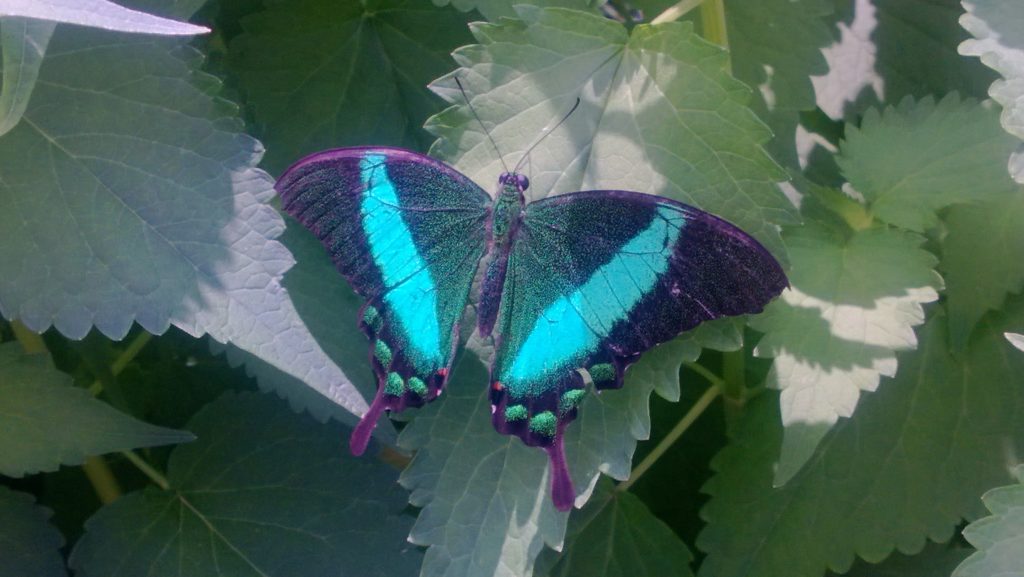
A butterfly our youngest daughter and I marveled at during an afternoon break from her med school studies.
This is not the first time this discomforting question has stalked me. In 2006, I embarked on The Berkana Institute’s first and only learning journey to India. I was well aware then that, despite my privilege, the world I was living in wasn’t to my liking. I had become disillusioned after years of watching an uncanny number of women, including myself, overextend and overcompensate to fit into structures and systems we were having little, if any, influence in shaping, leading or changing. I believed that as a highly educated society we could do better. But how?
Living the question of “the world I wish to live in” took me to back to India in 2010, 2016, and 2017 and prompted a move to the Pacific Northwest from 2006 to 2014. Happily, my quest took me places that didn’t require training to lower the timber of my voice or “to handbag” anyone, tactics Mary describes Margaret Thatcher employing in her rise and exercise of power. Rather, it afforded me and others plenty of opportunities to redefine leadership, a process Mary sees as vital if women are to thrive.
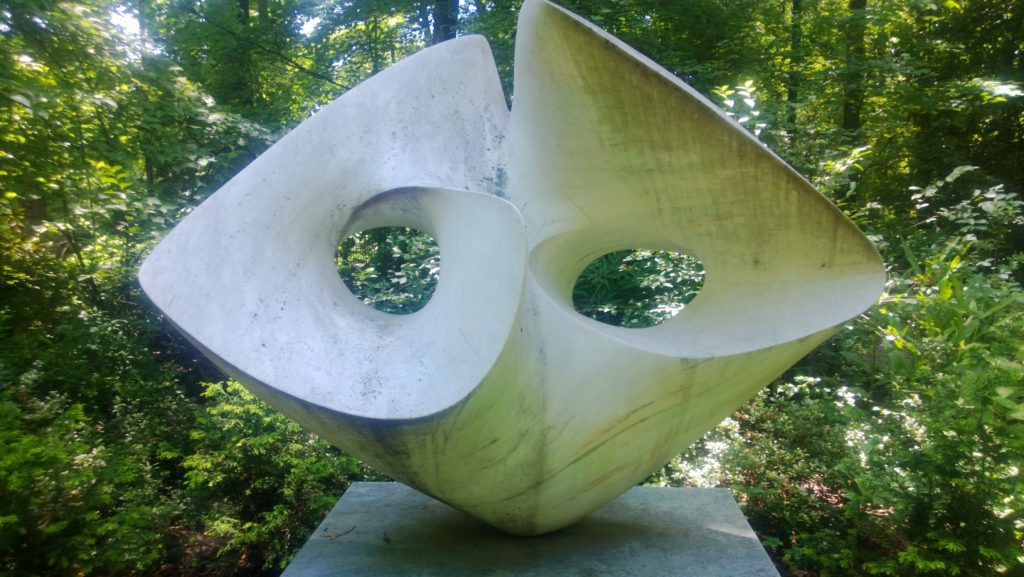
A garden sculpture our daughter and I discovered while she was completing her internship in Memphis.
Today, two of my most frequent destinations remain movements constructed by women in the past 25 years – structures that “are not already coded as male” in Mary’s words and that don’t require male genitalia to be heard or to rise to the top. These are not spaces where men appear at the center of every universe and they require neither monster budgets or posh headquarters to prove their worth. In these revolutionary spaces, women are leading and all people — women, children, men, the poor, the most vulnerable — are respected, affirmed and encouraged to find and offer the gift of her or his leadership.
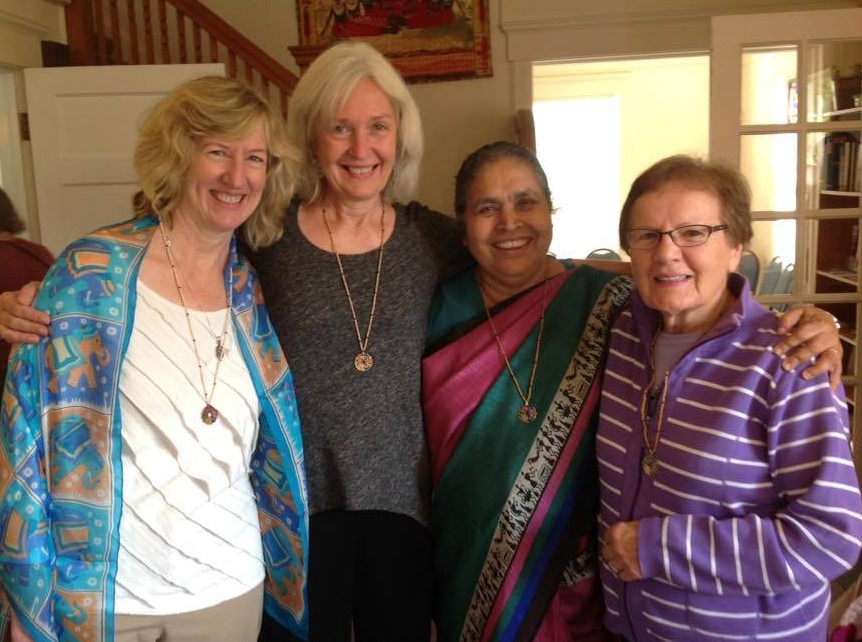
A 2016 Tacoma gathering to welcome Sr. Lucy Kurien, founder & director of Maher in India, back for her 4th visit.
I would believe such destinations Utopian in a “power over” world had I not spent a great deal of time observing, working and learning with their bold founders. Creating frameworks outside of predominant structures is difficult, messy work. Mistakes are made. However, these innovative organizations acknowledge and value the wisdom gleaned from missteps. Freed from the astonishing weight and bondage of perfection and the eternal energy drain of having to fit in and constantly prove and re-prove their worth, women in these powerful organizations can fly like legendary Phoenixes to new heights — their own.
Reading Mary’s manifesto a second time cleared my head and my sleep. In the Afterword, she finds hope in movements such as Black Lives Matter and #MeToo. Still, like many women, she knows that a 6,000+ year old imbalance of power is no easy tower to topple. Certainly, it will take a critical mass. Reading this small but mighty book felt an awful lot like pouring fuel on a fire. Maybe for now we just need a whole lot more fire.
